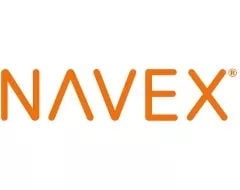The term "whistleblower" is fraught – sometimes (and incorrectly) thought of as a self-serving individual or a disloyal employee. But that could not be further from the truth. The role whistleblowers play in identifying and bringing to light corporate misconduct, toxic cultures and the like is vital for the cultural health of any company. In many cases, whistleblowers put their career or reputation at risk by reporting – this is especially true in businesses where a "speak-up" culture may not be fully embraced.
To that end, let's discuss three things to keep in mind to help businesses better embrace the critical role whistleblowers play creating an ethical and compliant culture.
Acknowledge your heroes
Embracing whistleblowers as heroes must start with messaging from the top – from the C-suite and board of directors, to management and individual contributors. "Acknowledgement" does not mean whistleblowers should be named or exposed, it simply means to recognize of the vital role they play and encouraging the workforce, third-parties, or any individual who may have information about wrongdoing to come forward.
So, why focus on messaging first? Because the right tone at the top is essential for trust and driving engagement. Senior management and the board need to advocate whistleblowing, underline its value for the organization, and make it clear that everybody has a responsibility, and the possibility, to raise concerns. Doing so will show concerns are taken seriously, will be investigated, and the matter resolved appropriately. In order to effectively encourage people to come forward the barrier to whistleblowing must be lowered to instill trust they will be heard and protected from reprisal.
Ensure zero tolerance for retaliation
Retaliation can take shape in many ways, from changing shift schedules and altered behavior towards the whistleblower, to unlawful termination of the employee. This is the enemy of a speak-up culture, and as such, must be dealt with swiftly and consistently – emphasizing a zero-tolerance policy that works in practice.
While the general attitude of acceptance of whistleblower reports is trending in a positive direction, retaliation still happens with a high enough frequency that organizations should take a closer look. Data from the 2023 NAVEX Hotline & Incident Management Benchmark Report indicates that .96% of reports were about retaliation – up from .78% in the previous year. A rise in reports of retaliation is an alarming sign that organizations would do well to pay attention to.
Paired with the rise in anonymous reporting, which now sits at 56% in 2022 – a 6% increase from 2022 – it is a defendable theory that many whistleblowers may report anonymously for fear of retaliation. Adding another layer to the narrative, we have an all-time high of external reporting in the U.S., which may also indicate a fear of retaliation or a lack of trust in internal reporting.
People need to trust they will be protected against any form of retaliation and negative consequences. Whistleblowing is stressful and people will only speak up if they trust the outcome of doing so. Fear of retaliation and inaccessibility to the right people who can do something about misconduct are major factors that keep people silent within companies and governmental authorities. In communicating about the importance of whistleblowing, leaders should ensure potential reporters that they will not be penalized for raising a concern and anonymous reports should be treated with the same level or importance as named reports.
Keep reporting simple and accessible
One barrier to reporting is, well, the potential barriers to reporting. If whistleblower reporting channels are difficult to access or not available in the native language of the reporter, you're far less likely to receive valuable information.
Essentially, organizations should prioritize taking the stress out of reporting by making it simple and accessible. Start by removing any thresholds to reporting, starting with letting whistleblowers report whenever, wherever and from whichever device they feel most comfortable. Guide the whistleblower through the process so they do not need to think twice about what to do or what to write.
At the end of the day, you do not want to risk not receiving business-critical information. Ways to make reporting easier include providing options for phone, web and open-door reporting and using a whistleblowing system that is intuitive and available 24/7/365. Opening up the reporting part of the whistleblowing system to external parties such as suppliers, partners, customers, and the general public extends your reach, indicates that you are seriously interested in knowing if a customer or supplier uncovers misconduct, and signals a desire to be transparent.
Whistleblowers play a critical role in society and should be treated as such. While not every single report is necessarily substantiated or actionable, the majority come from those seeking to improve ethics and compliance and bring to light areas to improve for the greater good.
The content of this article is intended to provide a general guide to the subject matter. Specialist advice should be sought about your specific circumstances.

